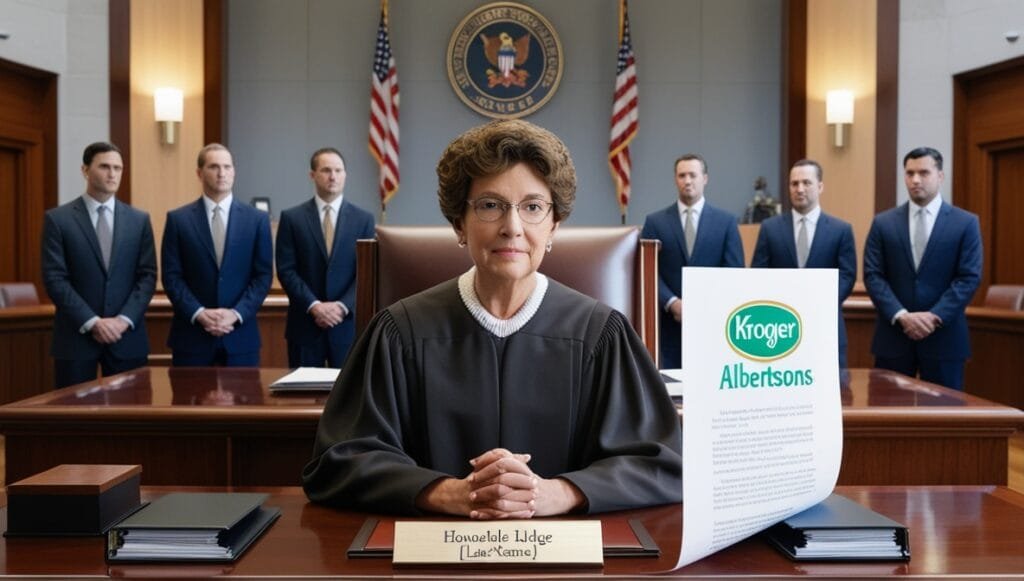Federal Judges Block Kroger-Albertsons $24.6 Billion Merger Over Antitrust Concerns – Federal judges in Oregon and Washington State halt the $24.6 billion Kroger-Albertsons merger, citing competition and consumer impact concerns. The ruling marks a major victory for the FTC.
Federal Judges Block $24.6 Billion Kroger-Albertsons Merger Over Competition Concerns
In a landmark ruling, federal judges in Oregon and Washington State have blocked the proposed $24.6 billion merger between Kroger and Albertsons. The decisions, hailed as a victory for the Federal Trade Commission (FTC), underscore growing regulatory scrutiny of large-scale corporate mergers.
Also Read – Trump Names Andrew Ferguson FTC Chair, Signaling Shift in Big Tech Regulation
Ruling Details and Implications
- Judges’ Decision: Federal Judge Adrienne Nelson in Oregon and a Washington State judge issued rulings halting the merger. They declared the deal “presumptively unlawful,” citing the significant competition that would be eliminated if the two grocery giants combined.
- Concerns Raised: The judges emphasized that the merger could harm consumers and workers by reducing competition and increasing prices.
Merger Status and Next Steps
While the federal injunction temporarily halts the merger, it does not force Kroger and Albertsons to abandon their plans entirely. The companies may continue pursuing approval through the FTC’s administrative process. However, additional hurdles, including the Washington State ruling and a pending legal challenge in Colorado, complicate the path forward.
Arguments from Both Sides

- Regulatory Concerns: The FTC and the courts argued that combining Kroger and Albertsons would create an overly dominant grocery chain, reducing competition and negatively impacting consumers.
- Defense by Grocery Chains: Kroger and Albertsons contended that the merger was essential to compete against larger retailers like Walmart and Amazon, which dominate the grocery sector.
Significance of the Ruling
This decision marks the largest blocked grocery merger in U.S. history, reflecting intensified scrutiny from regulators and courts on consolidation in critical industries. The outcome is seen as a strong message to corporations that large-scale mergers will face rigorous examination to ensure they do not harm market competition or consumer interests.





